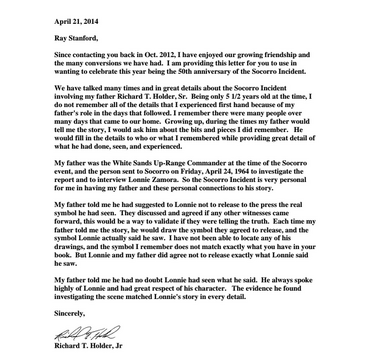marduk
quelling chaos since 2352BC
Pragmatically I agree, there's no way I know of to compel someone to release their data.He doesn't have to share his evidence...
However, ethically he does have an obligation have to share his data.
I fundamentally believe if his data is so profoundly significant to humanity, he has a moral and ethical responsibility to do so. Either it is not so significant or he has a problem as a scientist, which he considers himself to be.
Here's a very relevant part of the scientific method (I've edited and bolded relevant sections)
Peer review evaluation
Scientific journals use a process of peer review, in which scientists' manuscripts are submitted by editors of scientific journals to (usually one to three) fellow (usually anonymous) scientists familiar with the field for evaluation... This serves to keep the scientific literature free of unscientific or pseudoscientific work, to help cut down on obvious errors, and generally otherwise to improve the quality of the material...
Documentation and replication
Sometimes experimenters may make systematic errors during their experiments, unconsciously veer from scientific method (Pathological science) for various reasons, or, in rare cases, deliberately report false results. Consequently, it is a common practice for other scientists to attempt to repeat the experiments in order to duplicate the results, thus further validating the hypothesis.
Data sharing
When additional information is needed before a study can be reproduced, the author of the study is expected to provide it promptly.
Scientific method - Wikipedia, the free encyclopediaScientific journals use a process of peer review, in which scientists' manuscripts are submitted by editors of scientific journals to (usually one to three) fellow (usually anonymous) scientists familiar with the field for evaluation... This serves to keep the scientific literature free of unscientific or pseudoscientific work, to help cut down on obvious errors, and generally otherwise to improve the quality of the material...
Documentation and replication
Sometimes experimenters may make systematic errors during their experiments, unconsciously veer from scientific method (Pathological science) for various reasons, or, in rare cases, deliberately report false results. Consequently, it is a common practice for other scientists to attempt to repeat the experiments in order to duplicate the results, thus further validating the hypothesis.
Data sharing
When additional information is needed before a study can be reproduced, the author of the study is expected to provide it promptly.
Last edited:






